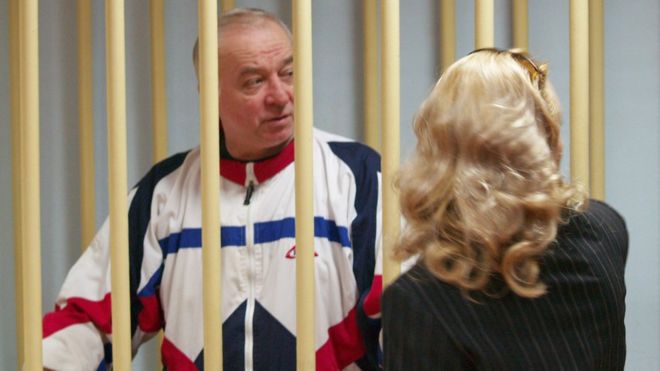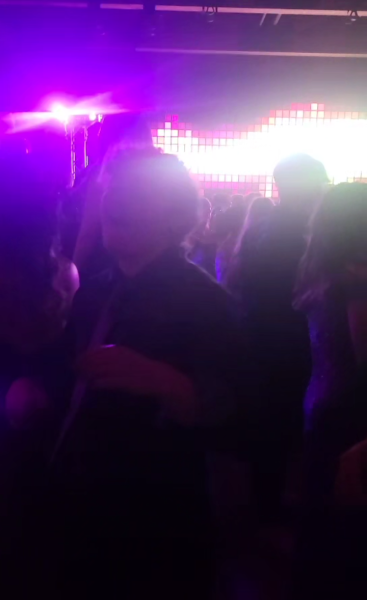Lies, Cries, and Russian Spies
Sergei Skripal was born on June 23, 1951, in the Kaliningrad Oblast region of the Soviet Union. Living deep within the Eastern Bloc at the height of the Cold War, Skripal’s life revolved around the Red Army. He attended the Zhdanov military engineering school in the village of Borisovo and graduated in 1972. He then furthered his education by attending the Moscow Military Engineering Academy and eventually served in the Soviet Airborne Troops.
During his time in the Airborne Troops, Skripal was selected to be a member of the Glavnoje Razvedyvatel’noje Upravlenije (GRU) or Military Intelligence Directorate. As a GRU officer, a newly promoted Skripal was sent to the Russian embassy in Malta. In 1994, Skripal was sent to Madrid, Spain to work a position at the military attache’s office.
While he spent most of his life working for his home country, Russia, it would only be one year later, in 1995 within the heart of Spain, where Skripal would meet Pablo Miller, a British intelligence agent who would go on to recruit Skripal into British intelligence. In 1996, Skripal’s poor health required that he return to Moscow; however, he returned to the Russian capital as a British double agent. During his time working for the British, Skripal had allegedly blown the cover of over 300 Russian agents, passed on Russian state secrets, and revealed the identities of Russian intelligence agents.
In 2004, Skripal was arrested outside of his Moscow home after returning from Britain. In 2006, he was convicted under the Moscow Regional Military Court for high treason in the form of espionage in a trial that was conducted behind closed doors. After being slammed with a 13 year, high-security prison sentence, it would only be 4 years later on July 9, 2010, when he and 4 other Russian nationals imprisoned with similar crimes would be freed as a part of a spy swap for ten Russian spies arrested in the United States.
Despite his early release, a pardon from Russia, and a new life in the UK, the target that was painted on Skripal’s back by Russia would not go away. On March 4, 2018, 27 years after the fall of the Soviet Union, Skripal and his 33-year-old daughter, Yulia, were poisoned with a nerve agent on a bench in Salisbury.
Paramedics quickly took Skripal and his daughter to the Salisbury District Hospital before having to be treated themselves for minor symptoms from the contact with the nerve agent. While the two were being treated in the hospital, the British government wasted no time before mobilizing an investigation on the incident.
With multiple government agencies involved, it only took the British government 9 days to identify the nerve agent used to poison Skripal and his daughter. On March 12, Prime Minister Theresa May revealed to the public that the attack was carried out using a Russian-developed Novichok agent.
After demanding an explanation from the Russian government and being left with no response, May expelled 23 Russian diplomats as a response to the attack and announced that the attack was carried out by the Russian government.
Without any hard evidence that would expose the killer, sources claim that it was most likely the Russian government. Russia has had a previous track record of silencing their former agents.
Back in 2006, a former Russian spy, Alexander Litvinenko, was killed after drinking a cup of tea that was laced with Polonium 210, a radioactive substance. Despite Putin denying any involvement in the killing, Litvinenko called out Putin in his last words. Litvinenko’s death comes after his repeated criticisms of Vladimir Putin and his allegations of corruption within the Russian government. Litvinenko claimed that he met two KGB agents on the day of his poisoning. One of the agents was revealed to have been caught with traces of Polonium 210 throughout his Hamburg home and his car.
While there have also been 14 other cases of suspicious deaths of Russian-linked individuals in the UK, Litvinenko’s case has recently been reopened for investigation as it is believed to share many similarities with Skripal’s incident.
With the deaths of these former Russian agents, businessmen, and bureaucrats being shoved into the international spotlight, the tensions between the Russians and the West has begun to rise once again. Following the expulsion of the Russian diplomats from Britain, Russia responded by expelling the same amount of British diplomats from the country.
The UK then struck a diplomatic victory when it was able to muster a coalition of 18 European countries, Canada, Ukraine, and the United States to expel over 100 Russian diplomats. Russia then responded by expelling almost all of the diplomats from each of the countries and closing the US consulate in Moscow.
All of this diplomat expulsion comes at the feet of already souring relations between the United States and the Russian Federation. With fresh US-imposed sanctions on Russian oligarchs, businesses, and defense entities for the Russian involvement in Syria just days before the incident, it is likely that relations were going to sour between the West and Russia regardless.
Despite the Cold War being over for over 20 years, it seems that the West and the East will continue to exchange blows with one another. Even with the golden era of espionage and James Bond long gone, it is still clear that spies can still have a massive impact on the world around us.

Hi, my name is Jake Werner and this is my staff profile. I am a Copy Editor, the Fun Facts editor, and the editor of the Jetcast and this is my second...








